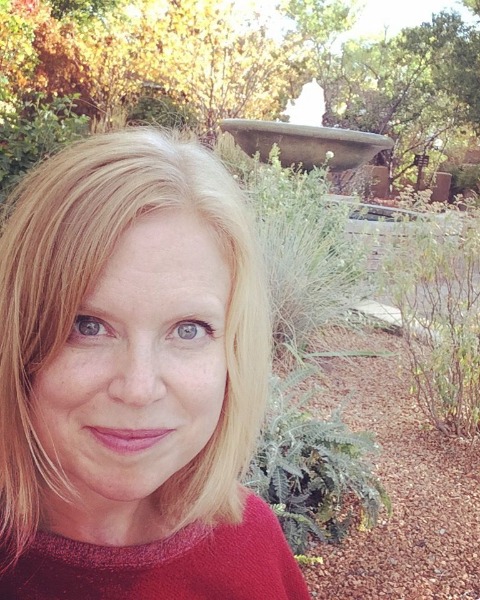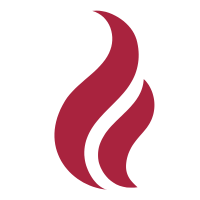Ignite
Health Evaluation
Ignite Session 4
No fish tales: How stories from the fishing community inform a nonprofit's program design
Thursday, October 12, 2023
5:00 PM - 6:00 PM ET
Location: Room 305

Gretchen Biesecker, PhD (she/her/hers)
Principal Consultant
Bee's Knees Consulting LLC
Somerville, Massachusetts, United States
Presenter(s)
Abstract Information: Commercial fishing is one of the most dangerous occupations in the United States; during 2000-2015, an annual average of 42 deaths occurred in the industry – a fatality rate of 117 deaths per 100,000 workers, compared with an average of 4 deaths per 100,000 workers among all U.S. workers (U.S. Department of Labor, Bureau of Labor Statistics, 2019). A nonprofit, Fishing Partnership Support Services (FP), founded more than 25 years ago and based in Massachusetts, promotes the health, safety, and economic security of commercial fisherman. The organization does this through a holistic set of services including safety-at-sea, naloxone, and CPR trainings, as well as other community health work. Fishing Partnership community health workers (known as Navigators) come from fishing communities or are fishermen themselves, providing services from four port towns in Massachusetts. Deeply embedded in these communities, Navigators listen and share stories from their work as part of the organization’s evaluation efforts and learning culture. Navigators enter “success stories” on an ongoing basis into FP’s robust Salesforce database. On a quarterly basis, Navigators summarize and reflect on stories that illustrate quantitative metrics in reports to the state’s Executive Office of Human Services and other funders. Fishermen trust FP and often post stories about what they have learned in safety and other trainings to social media. Ideas from the fishing community about services they wish for, or services they value, inform the design and refinement of FP’s programs. In this Ignite talk, we will share examples of stories collected through ongoing evaluation that: a) brought quantitative metrics to life in reports to funders; and b) informed changes or new ideas for program design. Story topics include: assistance with enrolling or maintaining health insurance; bringing services to the docks in response to boat captain requests; how fishermen can access holistic services as they grow from youth to adulthood; changes in attitudes toward behavioral health and related stigma; and putting CPR, naloxone, and other safety training learnings into practice. Evaluators seeking ways to collect stories, build culture and capacity to use stories, particularly within community health settings will find this talk highly relevant to their work.
Relevance Statement: Commercial fishing is one of the most dangerous occupations in the United States; during 2000-2015, an annual average of 42 deaths occurred in the industry – a fatality rate of 117 deaths per 100,000 workers, compared with an average of 4 deaths per 100,000 workers among all U.S. workers (U.S. Department of Labor, Bureau of Labor Statistics, 2019). In addition to industry-specific hazards, commercial fishermen have been disproportionately affected by the opioid epidemic; high rates of on-the-job injuries among commercial fishermen often result in prescription opioids being used to treat pain, ultimately leading to members of the industry becoming more susceptible to developing substance use disorders (Walter, Morocho, et al., 2018) Despite the known risks of fishing and policy recommendations to improve safety, less is known about how to promote behavioral health within the industry. Disconnected services, which are difficult to navigate (including health insurance, access to health providers and mental health services), are barriers to care. Without health insurance, fishermen cannot afford mental health services and prescriptions, and the steps that are needed to find and maintain health insurance are complex as independent workers. Finding primary care providers who accept a particular insurance plan, identifying available mental health providers to assist fishing families experiencing trauma and connecting fishing families to each other and to recovery groups, are only a few challenges to the industry and to many other low-income workers in the U.S. In response to these needs, a nonprofit, Fishing Partnership Support Services (FP) developed as a backbone organization, designing services and bringing together providers, policymakers, and disparate groups of fishing industry workers. FP’s distinctive community health worker model builds organizational credibility and trust within commercial fishing communities. To qualify for the position of Navigator, individuals receive training to earn certification as a Community Health Worker (CHW). Navigators are deeply embedded in their communities and advocate, support, and organize to offer a range of supports, including: • health insurance navigation • accessing financial aid and financial planning education • finding a medical home/provider • bringing health providers dockside for preventive services (e.g., dental cleanings, cancer screenings, vaccines) • educating communities about CPR/first aid, Narcan, vaccines and • connecting fishing families to substance use disorder programs • joining police and health departments in outreach to families experiencing overdoses • responding to trauma with psychological first aid • promoting safety training and conducting related outreach • connecting women of fishing and fishing families to each other Navigators listen to the fishing community and communicate what they learn, which FP shares back with health departments, policymakers, the state health insurance exchange, and others. Although fishing is a specific context, the community-based and community health worker approaches that FP uses apply to other organizations and settings. Evaluators seeking ways to collect stories, build culture and capacity to use stories, particularly within community health settings will find this talk highly relevant to their work.
Relevance Statement: Commercial fishing is one of the most dangerous occupations in the United States; during 2000-2015, an annual average of 42 deaths occurred in the industry – a fatality rate of 117 deaths per 100,000 workers, compared with an average of 4 deaths per 100,000 workers among all U.S. workers (U.S. Department of Labor, Bureau of Labor Statistics, 2019). In addition to industry-specific hazards, commercial fishermen have been disproportionately affected by the opioid epidemic; high rates of on-the-job injuries among commercial fishermen often result in prescription opioids being used to treat pain, ultimately leading to members of the industry becoming more susceptible to developing substance use disorders (Walter, Morocho, et al., 2018) Despite the known risks of fishing and policy recommendations to improve safety, less is known about how to promote behavioral health within the industry. Disconnected services, which are difficult to navigate (including health insurance, access to health providers and mental health services), are barriers to care. Without health insurance, fishermen cannot afford mental health services and prescriptions, and the steps that are needed to find and maintain health insurance are complex as independent workers. Finding primary care providers who accept a particular insurance plan, identifying available mental health providers to assist fishing families experiencing trauma and connecting fishing families to each other and to recovery groups, are only a few challenges to the industry and to many other low-income workers in the U.S. In response to these needs, a nonprofit, Fishing Partnership Support Services (FP) developed as a backbone organization, designing services and bringing together providers, policymakers, and disparate groups of fishing industry workers. FP’s distinctive community health worker model builds organizational credibility and trust within commercial fishing communities. To qualify for the position of Navigator, individuals receive training to earn certification as a Community Health Worker (CHW). Navigators are deeply embedded in their communities and advocate, support, and organize to offer a range of supports, including: • health insurance navigation • accessing financial aid and financial planning education • finding a medical home/provider • bringing health providers dockside for preventive services (e.g., dental cleanings, cancer screenings, vaccines) • educating communities about CPR/first aid, Narcan, vaccines and • connecting fishing families to substance use disorder programs • joining police and health departments in outreach to families experiencing overdoses • responding to trauma with psychological first aid • promoting safety training and conducting related outreach • connecting women of fishing and fishing families to each other Navigators listen to the fishing community and communicate what they learn, which FP shares back with health departments, policymakers, the state health insurance exchange, and others. Although fishing is a specific context, the community-based and community health worker approaches that FP uses apply to other organizations and settings. Evaluators seeking ways to collect stories, build culture and capacity to use stories, particularly within community health settings will find this talk highly relevant to their work.

